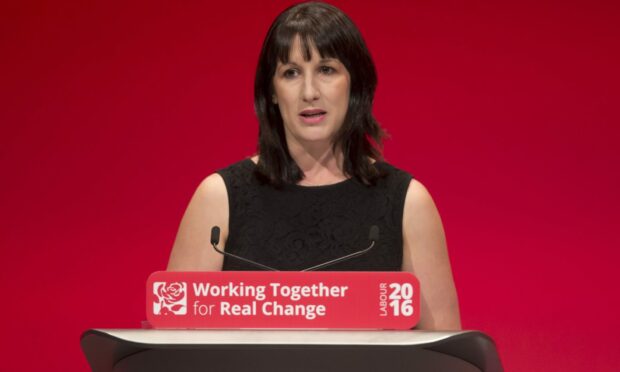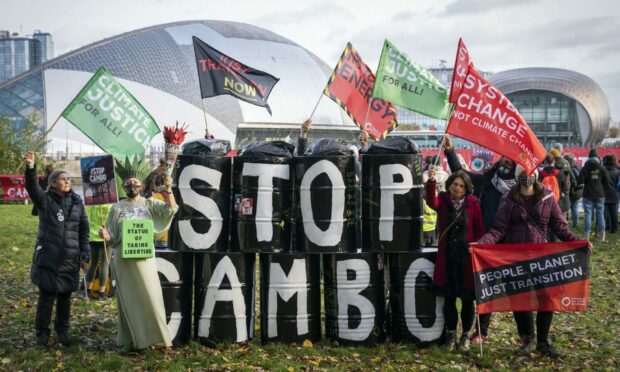Labour has joined calls to impose a one-off ‘windfall tax’ on North Sea oil and gas companies to fund measures to ease household energy bills.
Fossil fuel producers would be forced to contribute £1.2 billion under the party’s £6.6 billion proposals to reduce the average household energy bill by £200.
However, there are fears a windfall tax on the profits of oil and gas companies would deal a further blow to “investor confidence in the North Sea.
Fresh calls have been made in recent days for Westminster to tap into the profits of oil and gas firms.
Liberal Democrat leader Sir Ed Davey said a “Robin Hood tax on gas and oil barons would provide provide vital cash to support vulnerable families facing crippling energy price hikes”.
The UK Government faces increasing pressure to act in the energy crisis, with experts predicting a 50% hike to bills in April, meaning an average household paying about £700 more per year.
Oil and gas firms ‘should pay a bit more tax’
Speaking on the BBC’s Sunday Morning Show, Shadow Chancellor Rachel Reeves, said North Sea oil and gas companies would make “record profits this year because of that big spike in gas and electricity prices”.
She added that therefore they should “pay a bit more tax to keep bills down for everybody else”.
Ms Reeves said: “I recognise that these problems are not just of one year and that we need proper reform to the market.”
Labour’s plan would include removing VAT on domestic energy bills for a whole year, as well as expanding and increasing the warm homes discount for those most at risk.
It estimates the proposals would save most households about £200.
‘Completely out of touch with Scotland’
However, Conservative MP for Banff and Buchan, David Duguid, said the windfall tax suggestion “shows Labour are completely out of touch with Scotland and the north-east in particular”.
He added: “The UK Government is working with the oil and gas sector to meet our net zero carbon obligations through the North Sea Transition Deal – predicted to attract billions in private investment.

“A windfall tax could damage the energy transition by shaking investor confidence, threatening the economy and livelihoods as well as our net zero objectives in the process.
“Labour need to wake up and realise the UK requires significant domestic production as well as the technology and expertise the industry brings to energy transition plans.”
Concerns over ‘investor confidence’
The suggestion comes at an uncertain time for the sector after First Minister Nicola Sturgeon called for a shift away from oil and gas “as quickly as possible”.
This has been exacerbated by Shell’s decision to pull out of the controversial Cambo oil project, which the SNP leader had said should not get the green light.
Jenny Stanning, Oil and Gas UK’s (OGUK) external relations director, warned last week that the proposal for a windfall tax could also cut the amount of money firms are able to spend on decarbonising their operations.
Speaking to Energy Voice, she said: “A windfall tax would knock investor confidence, damage the competitiveness of our basin and potentially affect the future production of resources that will be needed by the UK for years to come.
“Many of the companies that might be affected are also investing heavily in low-carbon and renewable energy. For them, a windfall tax could reduce the amounts they could invest while also generating uncertainty about future potential returns.”
‘Not a fan’ of windfall taxes
However, despite the fears about a sudden and sharp change to the tax regime, it would appear unlikely at this stage.
Kwasi Kwarteng, the UK’s Business Secretary, said in September last year that he is “not a fan” of windfall taxes, though the decision ultimately lies with the Treasury.
Responding to Labour’s proposals, a UK Government spokesman said: “The energy price cap is currently insulating millions of consumers from high global gas prices.
“We’ll continue to listen to consumers and businesses on how to manage the costs of energy.
“We recognise people are facing pressures with the cost of living, which is why we are taking action worth more than £4.2 billion, and supporting vulnerable households through initiatives such as the £500 million household support fund, warm home discount, winter fuel payments and cold weather payments.”



